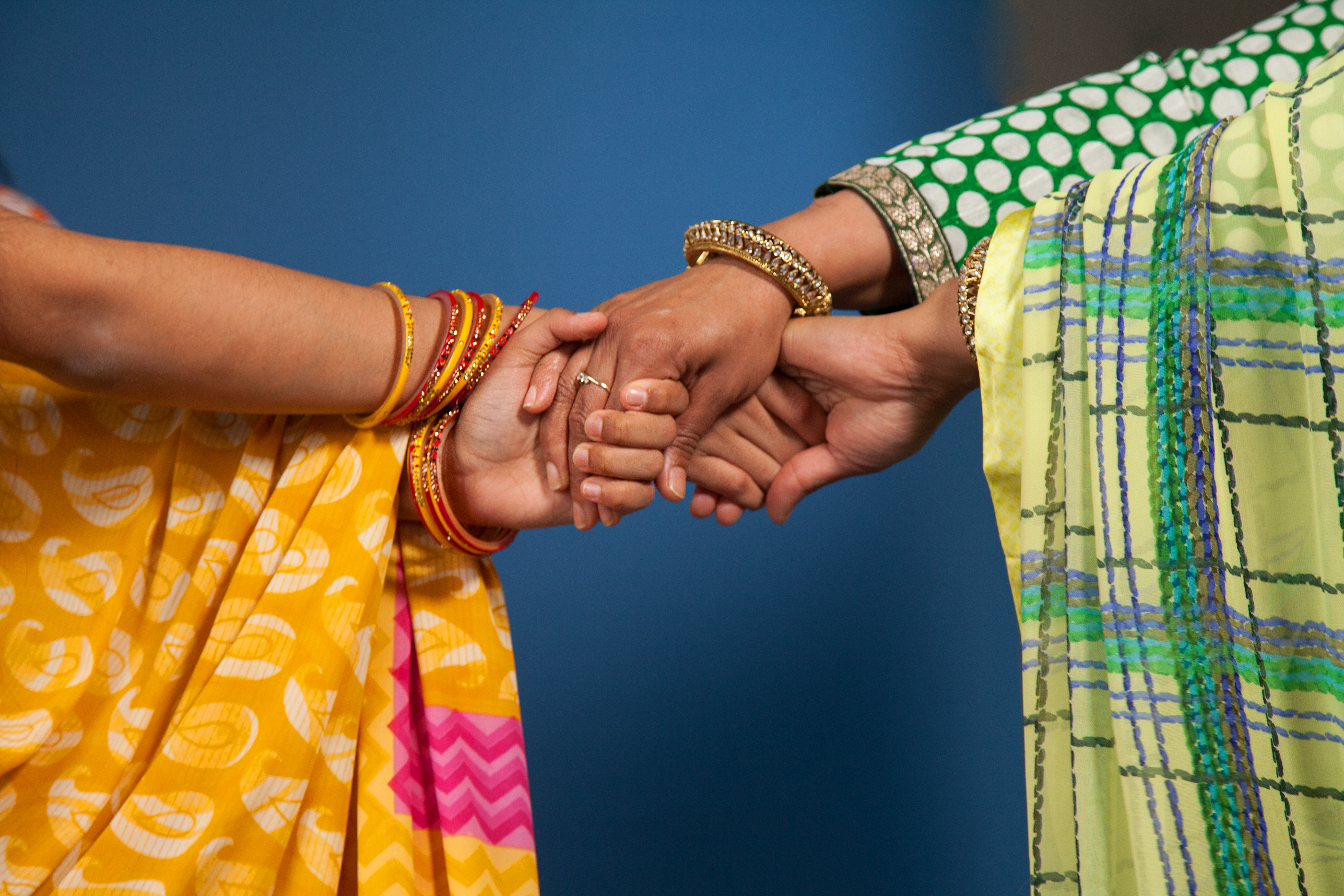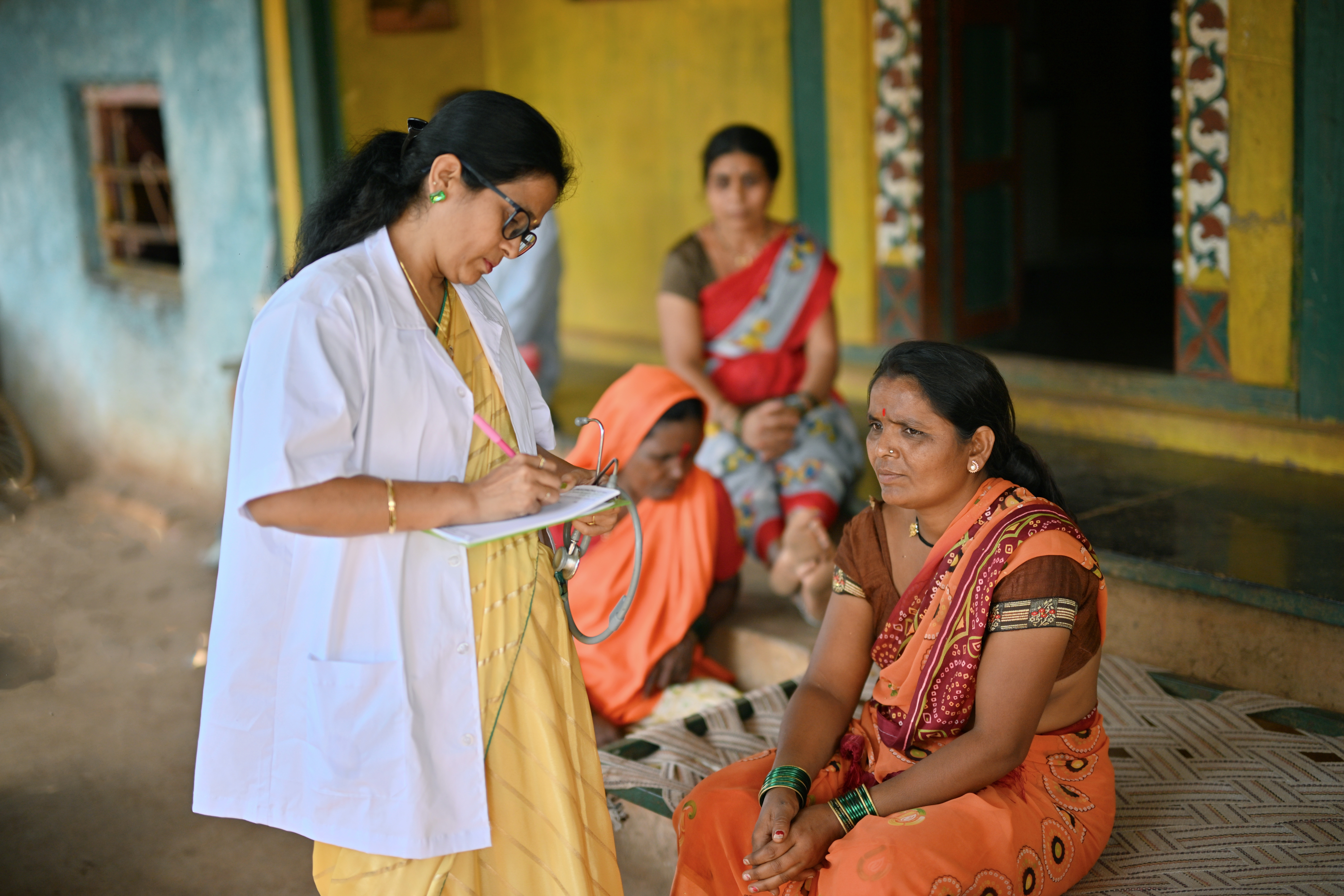Most women in India hit menopause earlier than their counterparts in the West, studies show. A recent research paper found that premature menopause is also on the rise that women experience particularly in the age group of 30-39 years. However, there are very few resources to help them get through it.
"The average age of menopause in India is 47, which means some women can hit it by 44-45 while some at 50. This is normal," says Dr. Tanveer Aujla, Senior Consultant Obstetrician and Gynecologist at Motherhood Hospitals in Noida.
This is several years earlier than in the US where women hit menopause at 51. Doctors say the earlier menopause is due to environmental and nutritional circumstances, as well as genetic factors.
But in a country where menopause comes with a lot of stigma attached, awareness is still lagging. A natural universal phase in every woman's life that marks the end of her reproductive years, is wrapped in silence, shame and misunderstanding.
Cultural silence
Menopause is officially reached when a woman has gone an entire year without menstruating. However, this transition is preceded by perimenopause, a phase with a gradual decline in reproductive hormones, which can last anywhere from two to ten years.
Miles a part Bollywood actresses have spoken about their perimenopause and menopause experiences. In fact, the Mohabbatein actress Shamita Shetty confessed that she wasn't aware of perimenopause. Twinkle Khanna, Shweta Bachchan, and most recently television host Mini Mathur also spoke about perimenopause phase. The women have been candid enough to say that their family too didn't understand what they were going through – an indication that menopause is indeed a neglected subject that concerns women.
While conversations about women's health have gained momentum in recent years, menopause remains largely overlooked – a subject whispered about, if only addressed at all. For many women, the lack of awareness and support turns what could be a manageable transition into a period of unnecessary suffering. "Menopause is not the end of a woman's vitality or worth. It is a natural phase of life that deserves as much attention and care as any other," says Dr. Rajashri Tayshete Bhasale, Consultant Gynecologist and Laparoscopic Surgeon at Wockhardt Hospitals in Mumbai.

The lack of awareness about menopause comes from cultural stigma, inadequate health education and societal silence. "People, especially women tend to hesitate discussing or talking about issues like menstrual cycles, perimenopause, and menopause. Many avoid discussing this sensitive topic as menopause can feel like a personal experience and sometimes it can be uncomfortable to discuss openly while experiencing a range of physical and emotional symptoms," says Dr. Bhasale.
"Additionally, it is also a stigma that menopause is an indication that the woman is getting older which can be a little distressing to share with others."
In India, most women are unaware of menopause until they experience it. By the time they experience menopause, they are often unprepared or unsure of what to expect. "Dealing with the adverse effects of menopause such as physical and emotional changes can be stressful which can have a significant effect on their day-to-day lifestyle," adds the doctor.
Overlooked phase of women's health
Prakriti Mehra juggles her work and family while also experiencing the initial phase of menopause. "I am tired of feeling hot flashes. I am always angry and irritated but I can't fight," she says. Prakriti. "I experienced excessive bleeding with a lot of pain. I thought I was sick or something was wrong in my body until my daughter told me it was one of the symptoms of menopause and took me to a doctor."
Women are not trained enough or educated about this particular stage of their life making them clueless. "More proactive steps need to be taken to prevent menopause from becoming a taboo and help women navigate through this transitional phase of their lives smoothly and with ease," says Dr. Aujla.
India's 2026 census data is projected to reach 400 million but women are unprepared, unaware of its symptoms like hot flashes, mood swings, and health risks such as osteoporosis or heart disease. "Various signs of menopause often go unnoticed until they become problematic. Women try to overlook these symptoms as a minor inconvenience in their lives and try to bear it until they can," says Dr Aujla.
The common symptom of menopause is the significant changes in your menstrual pattern as the periods may become irregular, lighter, or heavier than usual before stopping. Other symptoms may include hot flashes, night sweats, vaginal dryness, difficulty in falling asleep, extreme mood swings, irritability, anxiety, depression, problems with memory, unable to focus or maintain concentration, brain fog, thinning of the hair, and dry skin.
However, the intensity and severity of these symptoms may vary from person to person. These symptoms start to begin when women reach their 40s or 50s. The symptoms of menopause may last for a few years or more. Some women may experience these symptoms while some may not. But neglecting them can only worsen your pain. Doctors say the severity of these symptoms can make it "nearly impossible to perform day-to-day activities."
Women are unprepared for menopause
In rural areas, the problem is even worse, added with limited access to healthcare. For many women, openly discussing symptoms like hot flashes, mood swings, or irregular periods is seen as embarrassing or inappropriate. Women are often expected to endure these challenges silently, fearing judgment or being labelled as old or incapable.

Moreover, the lack of health education further exacerbates the problem. In schools and communities, conversations about women’s health focus primarily on menstruation and childbirth, leaving menopause a glaring gap in awareness and dialogue. This taboo has consequences.
"The emotional toll is equally overwhelming. Without open conversations or support systems, women often feel isolated, battling anxiety, depression, and a sense of invisibility. In many cases, family members, including husbands and children, fail to understand or empathise with what the woman is going through," says Clinical Psychologist Dr. Monica Sharma.
"Most menopause symptoms are manageable with lifestyle modifications like exercising regularly, eating healthy and well-balanced meals, managing stress levels, performing mindful practices like meditation or deep-breathing exercises, getting enough sleep, and avoiding caffeine before bed," doctor Madhulika Singh, Senior Consultant Obstetrician and Gynaecologist at Ankura Hospital for Women and Child in Pune says. But there are no tests to determine the condition and they usually rely on eliminating other causes for the symptoms. "In some cases, women may be recommended hormone replacement therapy (HRT), which can help balance hormones such as estrogen and progesterone levels."
The little knowledge imparted about perimenopause and menopause can also make the diagnosis process frustrating for women. Many women, not only in rural areas but in metros hide their changes in mood and sex drive brought by menopause from their husbands for years.
Time for change
Deane De Menezes, who works with women in rural areas on reducing the stigma associated with menstruation, found there is barely any provision for menopausal women at rural government clinics. Many women shy away from talking about menstruation and menopause is not even a discussion. Primary healthcare workers don't have training to deal with such cases. Everyone is like "Yeh to sabko hota hai" (This happens to everyone).
According to a study done by the South Asian Federation of Menopause Societies, only 33% of women were aware of menopause symptoms and severity. The survey done with over 370 women between the ages of 40 and 60 noted, "About 20% experienced nothing at all. The rest experienced one or more symptoms mildly while 15-20 were experiencing it to a severe degree."
While information about menopause remains limited in India, women are reaching out to social media for awareness, at least in urban cities. Many turn to American experts like Dr. Mary Claire Haver, who shares the latest research on social media, and celebrities such as Hollywood actresses Naomi Watts and Halle Berry. They have been actively promoting the documentary The M Factor: Shredding the Silence on Menopause. Berry is also advocating for new legislation to support research, training, and education on menopause. In villages, women resign to their pain and symptoms.
"Incorporating menopause education into school curriculums and women’s health programs can empower young girls and women to understand and prepare for this phase of life. Workplaces must adopt menopause-friendly policies. If they offer flexibility and healthcare support, they can make a significant difference for women managing symptoms while balancing their careers," says Menezes.
Dr. Sharma points out that men too can have a critical role in breaking the stigma. "Whether as husbands, brothers, or colleagues, their understanding and support can create a more inclusive environment. Normalising discussions about menopause in family settings can nurture empathy and reduce the isolation many women feel."
Read More:



